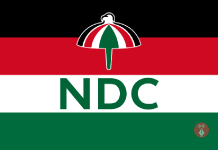Against all odds, the Ghana Electoral Commission (EC) has announced that it has scheduled June 2020, to force Ghanaians out into mass gathering for the controversial new voters’ register.
According to an EC statement seen by Whatsup News, the new registration process will start in June and is expected to be completed by mid- July 2020.
“The Electoral Commission divided the polling stations into clusters, each composed of five (05) polling stations and 8 days will be required for the registration of voters in a cluster. Therefore, it will take a total of 40 days to complete this exercise,” reads the statement signed by the Deputy Commissioner of the EC in charge of Operations.
It continues: “Then the Election Commission will need 5 days for the review of the voters’ lists and then the display of the provisional lists would take place from 15th to 28th September 2020. Then between 12th and 15th October 2020, the EC will proceed with the verification of the authenticity of the entries on the electoral lists.”
In the EC’s plan, the submission of candidatures is scheduled from 5th to 9th October 2020 and the advance voting will be held on 1st December 2020.
Regarding training of its agents, the EC says it will want to circumvent the Presidential directive banning mass gathering of more than 25 people by organising its training in batches of 20 agents.
“To circumvent the measure, the Commission has decided to train in batches of twenty (20) and repeat the training as many times as necessary. In addition, the electoral commission decided to acquire personal protective equipment (PPE) including masks, hydroalcoholic solutions, soap, thermo flashes, and gloves to be used during training and voting. “
Critics have bashed the EC for putting the health of Ghanaians at risk with its stubborn resolve to compile a new voters amidst the inherent threats of a possible spreading of the highly-infectious Covid-19 coronavirus.
Also, these critics have noted that the current register was credible enough to use for the December general elections because the EC had used the same register for three major elections in the past year, including the district level elections and the referendum for new regions in the country.
There are suspicions that the EC’s insistence on compiling a new register was an orchestrated attempt to favour the ruling party.
Meanwhile, ponouncements from executives of the ruling party appears to sync with this perception.









